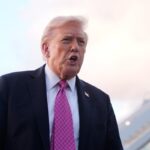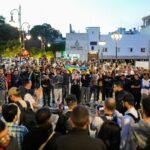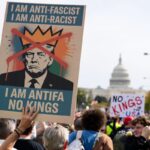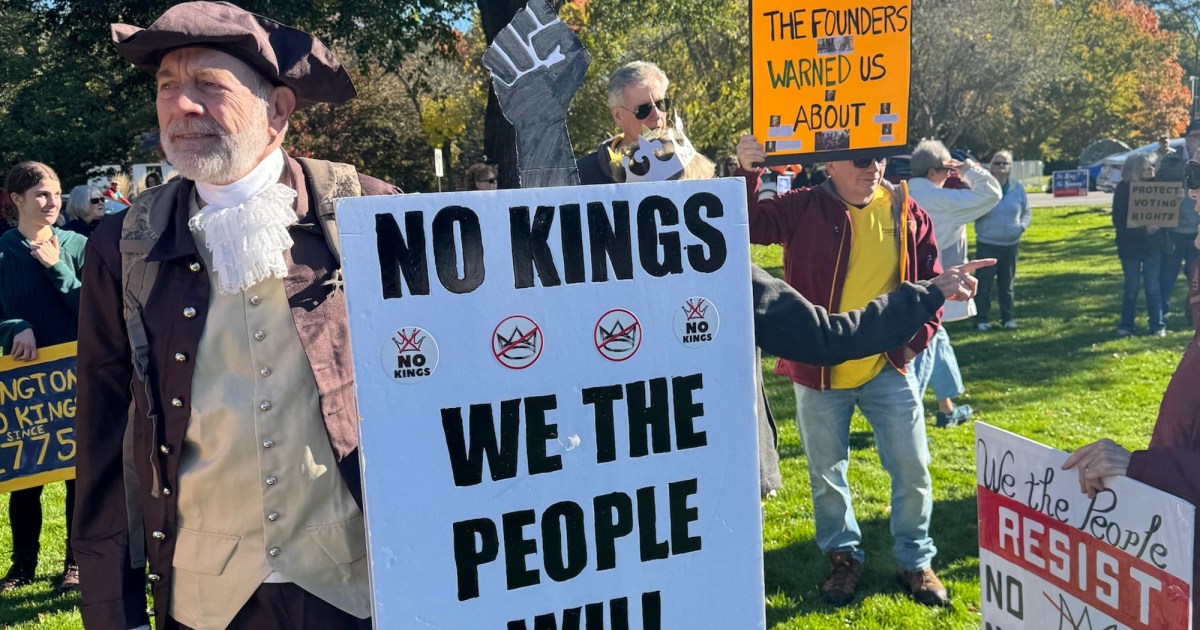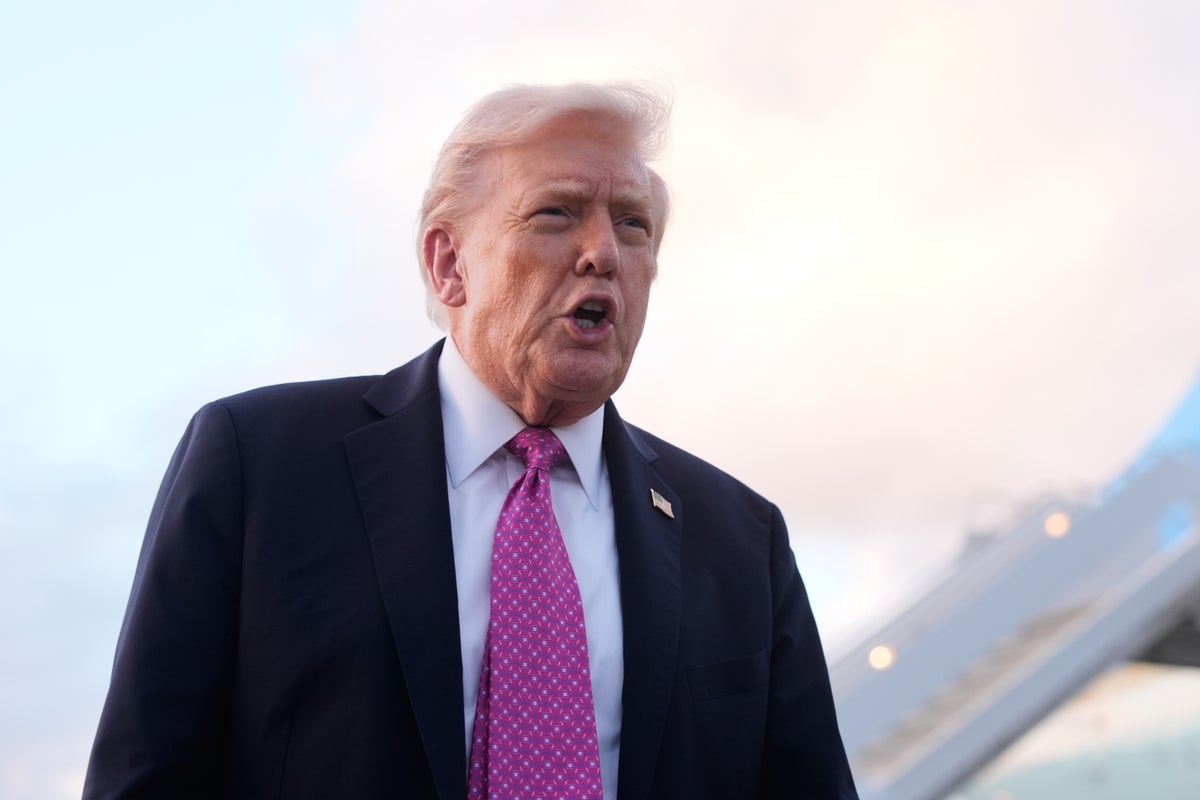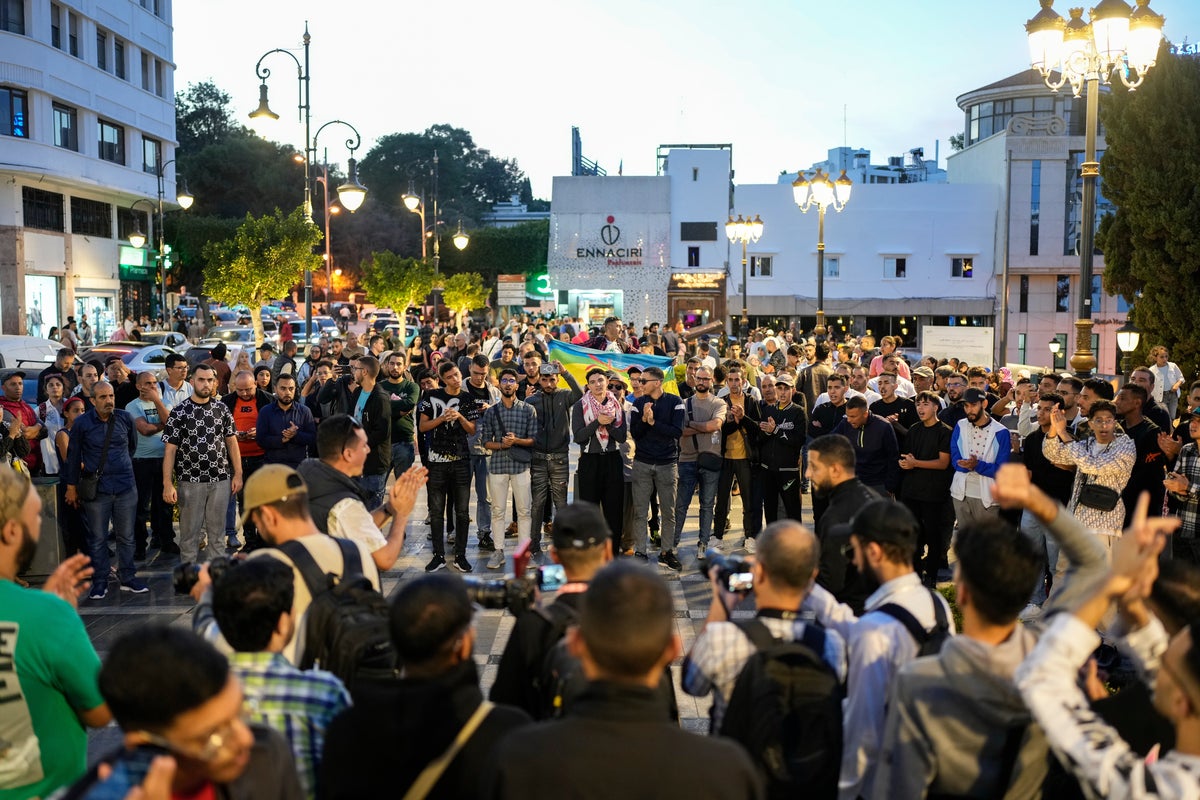Of the 2,500 No Kings gatherings across America, few were more saturated in American history—in flags and historical costumes—than the one on the Battle Green in Lexington, where the Minutemen fought another king 250 years ago. People streamed by the thousands on to the Green, under a bright sky; they listened cheerfully to speech upon speech, including one from Senator Ed Markey. I had the honor of the last word, and here is what I said:
As Sam Adams remarked on the occasion of the Battle of Lexington in 1775, so we can say today: “What a glorious morning for America.”
I have spent a lot of time on the Battle Green over the years. Growing up, I was a tour guide here—I passed a strenuous history test, and so was awarded a tricorne hat, and the license to tell the stories of the people who gave their lives in what might well be called the first No Kings protest—men who answered the midnight tolling of the bell in the belfry, and repaired to this Green in the cold and dark to wait for the British to arrive, knowing that they faced the greatest military force in the world. Eight of them died, and in the fashion of our time, let us say those names: John Brown, Samuel Hadley, Caleb Harrington, Isaac Muzzy, Robert Munroe, Asahel Porter, Jonas Parker. And young Jonathan Harrington who—at least as legend had it—was mortally wounded and crawled across the green towards his wife to die in her arms on the stoop of their house.
They believed that they were able to govern themselves. Their King did not, and he dispatched yet more troops to occupy our cities after the events of April 1775. But eventually, with much more sacrifice, their point was made, and democracy gained a foothold on this continent and this earth.
Two generations later, just down the road in Concord, Henry David Thoreau began his explorations of nonviolence, the first experiments with a tool the Minutemen did not possess. The development of that tool across the 20th century, from India to Selma, stands alongside the solar cell as last century’s greatest invention. And it too has been used on this Green. In May of 1971, the Vietnam Veterans Against the War, led by a young John Kerry, asked permission to bivouac on this Green during a march from Concord to Boston. When permission was denied by the Selectboard, they went ahead anyway, with the support of many Lexingtonians. I was here that night, and I remember it well—small huddles of people illuminated by the blue and red lights on the tops of the police cars. Since I was ten I eventually had to go home; my father stayed, and was arrested, with 457 others; it remains the largest arrest in Massachusetts history.
And that was a small part of a successful movement that ended a war that had killed millions in the jungles of Southeast Asia—a nonviolent victory.
Now we stand here at another remarkable turning point in American history. We have a president who, though duly elected, has decided to govern as a ruler. With the aid of a cowed Congress and a corrupted Supreme Court, he has ordered troops into peaceful cities, used masked secret police to arrest our neighbors on pretexts, upended the orderly work of Congress by cancelling projects they had funded, favored cronies and their businesses to line his pockets, reduced our standing in the community of nations by imposing scattershot tariffs, and all but ended the scientific progress that has marked this nation since Benjamin Franklin.
When our forebears rose against King George, they presented their list of complaints to the world, and too many of them sound familiar. In the words of the Declaration, the colonies arose to rebuke the crown for, among other things:
“affect(ing) to render the Military independent of and superior to the Civil power.”
“Cutting off our Trade with all parts of the world”:
And for “taking away our Charters, abolishing our most valuable Laws, and altering fundamentally the Forms of our Governments.”
We can add new ones: our new king has decided that half his subjects are worthless. As his spokeswoman declared on Thursday, the opposition party in this country’s “main constituency are made up of Hamas terrorists, illegal aliens and violent criminals.” As his lickspittle speaker of the House said earlier this week, our gathering today is part of a “Hate America Rally.” “Let’s see who will show up for that,” he said. “I bet you you’ll see Hamas supporters, I bet you’ll see antifa types, I bet you’ll see the Marxists on full display, the people who don’t want to stand and defend the foundational truths of this republic.”
Sadly, for Mike Johnson and Karoline Leavitt and Donald Trump, what we actually have here today are people who believe far more deeply than they in the “foundational truths of this republic.”
We believe that the president is not a monarch, but instead a person elected to protect the constitutional arrangements under which we live. We believe he has no more business dispatching troops to Portland or Chicago or Los Angeles than King George had dispatching troops to Lexington—less, in fact, for at least King George was working under the established rules of his day, rules overturned by the Revolution. We believe that the racism and xenophobia lurking in every pronouncement of this president goes against the work of Americans across 250 years to broaden our democracy past its stunted beginnings.
“If our ancestors could do without tea, then we can do without a new Tesla. We might even be able to do without Amazon Prime.”
And so we will fight—nonviolently, but without cease. We will continue to gather in the streets and on the town commons. We will do what we can to protect the right to vote, and we will exercise that franchise as long as it is granted us, and we will seize it back if it is taken away. We will come to the aid of our great colleges and universities—some of them just at the other end of Massachusetts Avenue in Cambridge—as long as they stand up to the regime. We will favor those companies and institutions that defy this new monarch, and we will boycott those who don’t—if our ancestors could do without tea, then we can do without a new Tesla. We might even be able to do without Amazon Prime. We will try to raise each other’s courage, and to support the families of those who are sent to jail, and we will honor those who lead us in this work. And we will do it in the best humor we can muster: Inflatable Frogs to the fore!
We do not know how this fight will come out. Donald Trump has seized vast powers, and clearly he has no hesitation in using them. His ego, badly bruised by having to sit in court to answer for his crimes, demands retribution, and he is now hunting down the enemies of his lawless rule. He and his rooster of a Defense Secretary are attempting to remake the military—descendants of the Minutemen—in their own pathetic image. So this could be a long battle.
But then the colonials had no idea how their fight would wind up either. They could not have foreseen Bunker Hill and Breeds Hill, Saratoga and Valley Forge, Brandywine and Yorktown. They could not have imagined the Articles of Confederation or the Constitution. They just knew some basic truths that we also know. For instance, they knew that humans are able to govern ourselves; they don’t need a ruler who declares, “Only I can fix it.” And they knew that with too much power comes corruption, which we’re now seeing on a scale that America has never known before. And above all they knew that those who would divide our people instead of unite them are not fit to take part in our government.
The British came this way on April 19 in 1775 to seize arms at Concord, but they wouldn’t have minded capturing John Hancock and Sam Adams, who had been spending the night at the parsonage on the Green. And so perhaps we should let Sam Adams—absolutely resolute patriot—have the final words. He understood the kind of people who have now seized power in our country, and those who enable them. “If you love wealth better than liberty, the tranquility of servitude better than the animating contest of freedom, go home from us in peace. We ask not your counsels or arms. Crouch down and lick the hands which feed you. May your chains set lightly upon you, and may posterity forget that you were our countrymen.”
And he understood the task before us all:
“The liberties of our country, the freedoms of our civil Constitution are worth defending at all hazards; it is our duty to defend them against all attacks. We have received them as a fair inheritance from our worthy ancestors. They purchased them for us with toil and danger and expense of treasure and blood. It will bring a mark of everlasting infamy on the present generation – enlightened as it is – if we should suffer them to be wrested from us by violence without a struggle, or to be cheated out of them by the artifices of designing men.”
Let us act with the courage of our forebears, peacefully but resolutely. We did not ask for this moment to come upon us, but we must rise to the occasion. This hallowed ground is as good a place as any to make that pledge.



